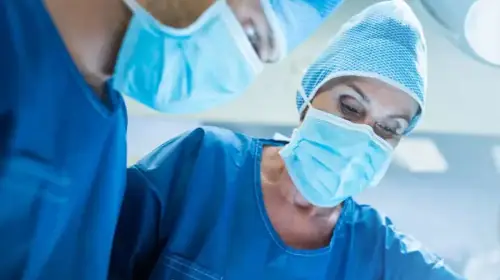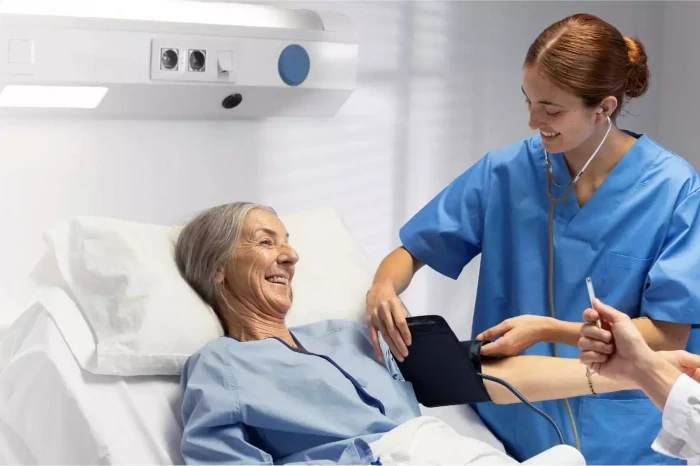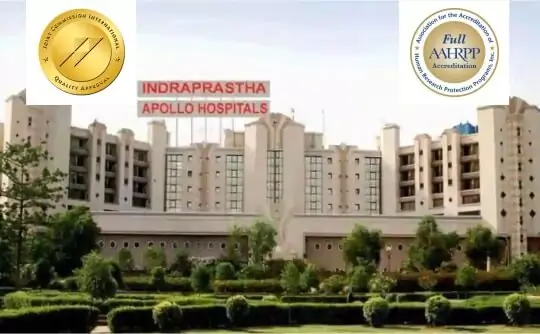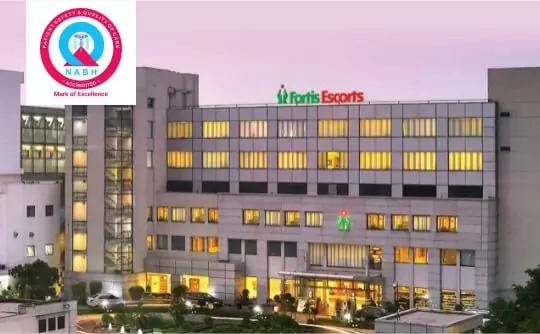

PDA Device Closure Treatment Cost in India starts from US $4,900 and varies depending on the medical history and medical condition of the patient, surgeon, hospital and the city where you choose to get the procedure done.
An important expense when it comes to your PDA Device Closure treatment is going to be your Cardiologist's fees. IndiCure recommends only experienced, skilled, board-certified surgeons who are capable of delivering successful heart surgeries. Although the charges may vary depending on the experience of the surgeon, you can be completely assured of being in safe and experienced hands when you choose heart surgery in India with IndiCure.
With the hopes of improving patient care, new techniques and technologies are often introduced to the surgical process. Such innovative advancements in the surgical approach can increase costs.
Having your PDA Device Closure procedure in an accredited surgical facility by skilled and qualified medical staff is a critical factor. Moreover, the geographical location of this facility also affects the initial quote. But, IndiCure provides you with a projected estimate that will be affordable.
The surgery-related expenses include the pre- and post-surgical expenses. The pre-surgical expenses are associated with the age and medical condition of the patient and thus the number and type of investigations required. Post-surgical expenses may include prescription medications and follow-up consultations.
We at IndiCure, understand that you travel with a budget in mind and do not like to be greeted by surprises after arrival in India. We thus club all these expenses and give you the package cost that is inclusive and affordable at the same time.
Your case manager shall give you an estimated cost of your surgery after discussing your medical reports with the surgeon. The final cost, however, shall be confirmed after your consultation with the surgeon.
In fact, we have Special Negotiated Rates with the Hospitals and you can avail Discounted Rates when you choose to Travel with IndiCure.


We Help you Choose the Right Treatment, Surgeon & Hospital

We Arrange Video/Telephonic Consultation with the Surgeon

We Assist you with Visa & Accommodation

We Receive you at the Airport and Drop you at Hotel/Hospital

We Assist you the at Hospital & Provide Post Operative Support
Years of Experience
Happy Clients
Countries Patient Treated
Most Affordable Price

New Delhi
Indraprastha Apollo Hospitals, New Delhi is a state of the art multi speciality tertiary-care hospital situated in the most posh area of South Delhi. Considered to be the flagship hospital of Apollo group, Indraprastha Apollo Hospital is one of the important landmarks not only in Delhi, but in the world map because of its popularity among the medical tourists. The hospital has been one of the most sought after medical institutions for patients from Asia Pacific and beyond.

New Delhi
Fortis Escorts Heart Institute and Research Centre is one of the most revered medical institutions not only in India, but the entire world. The institute has set benchmarks in cardiac care with path-breaking work over the last 25 plus years. The hospital has the most advanced technology and has seen the best outcomes even in the most complex cardiac cases; be it cardiac surgery, Interventional Cardiology, Pediatric Cardiology, Pediatric Cardiac Surgery or Non-invasive Cardiology
A PDA is a hole in the aorta that isn't closed.
The fetus's blood does not need to get to the lungs to get oxygenated before birth. The ductus arteriosus is a hole in the heart that allows blood to bypass the circulatory system and go straight to the lungs. However, the blood must get oxygen in the lungs when the infant is born, and this hole is meant to close. If the ductus arteriosus remains open (or patent), blood may bypass this crucial step in the circulation process. The patent ductus arteriosus is the name for the open hole (PDA).
Because the heart and lungs do not have to work as hard when the PDA is tiny, it will not cause symptoms. A specific sort of murmur could be the only abnormal finding (noise heard with a stethoscope).
The infant may breathe faster and harder than usual if the PDA is big. Infants may struggle to eat and grow at a typical pace. Symptoms may not appear for several weeks after the baby is born. Because more blood than usual is pumped into the lungs, high pressure might develop in the blood vessels. The blood arteries in the lungs may be permanently damaged as a result of this over time.
The PDA may usually be closed by introducing catheters (long thin tubes) into the blood vessels in the leg to reach the heart and the PDA, and then placing a coil or other device into the PDA like a plug through the catheters.
Any infant, either full-term or preterm, who has a hemodynamically severe PDA that needs to be closed.
The transcatheter PDA closure will take approximately 45 minutes and is done under general anesthesia.
A catheter will be inserted into the femoral vein in the baby's groin by the cardiologist. They'll use X-ray imaging to route the catheter to the heart and find the PDA. They'll next put an occlusion device into the baby's PDA through the catheter.
This device will block the vessel and prevent blood from going into the lungs after it is in place. Finally, doctors will remove the catheter with care and cover the groin access point with a small bandage.
Most patients with a modest unrepaired PDA or a treated PDA don't need to take any additional precautions and can go about their daily lives without risk. Even if you don't have pulmonary hypertension, your cardiologist may advise you to limit your physical activity for a short time after surgery or catheter closure.
The long-term outlook is excellent, and usually no medicines and no additional surgery or catheterization are needed.
We at IndiCure completely understand your concerns and it is always our endeavor to provide the best outcome for every patient. Following is the list of questions you must ask before you embark on your journey for PDA Device Closure in India.
Prepare to answer questions about your:

The ductus arteriosus generally closes two or three days after delivery. The opening takes longer to close in preterm newborns. A patent ductus arteriosus occurs when the link remains open.
As your child grows, a small patent ductus arteriosus may close on its own. A PDA that causes symptoms will require medication or surgery to treat. The cardiologist will regularly check to see if the PDA is closing on its own or needs an intervention. To avoid lung complications, if a PDA does not shut on its own, it will need to be repaired.
A PDA is termed small if it is less than 1.5 mm, moderate if it is between 1.5 and 3 mm, and large if it surpasses 3 mm.
Transcatheter PDA closure is a fairly safe technique with rare side effects. Impingement on adjacent structures, device dislodgement, and soreness/bruising at the groin site where the vessels were accessed to perform the surgery are possible risks, though happen rarely.
When you don't receive enough oxygen, the skin goes blue (cyanosis)
One of the most common congenital heart abnormalities is patent ductus arteriosus. In the United States, over 3,000 newborns are diagnosed with PDA each year. PDA is more common in premature babies, and it affects girls twice as much as it does boys.
Enhance your medical journey to India by availing these extra services.
Traveling abroad for medical reasons may be challenging. With our experience of over a decade and working with the best surgeons and top hospitals in India, we help make your medical tour easier and safer for you. We will guide you at every step of the way and make end-to-end arrangements for your surgery, travel, and stay.
Ramandeep Dhaliwal
I had great experience having rhinoplasty through Indicure. Dr. Ruchika from Indicure has helped me in finding best plastic surgeon, answering all my questions...
Read More
Joshua Archer
My name is Joshua Archer I'm from New Zealand, bay of plenty, kawerau I opted for the bypass surgery in January 2023 but planned it in advance for 28 September found IndiCure...
Read More
Kera Ren
Absolutely loved my experience with IndiCure - from first inquiring to meeting the surgeon pre op to my follow up post op. The surgeon was extremely approachable...
Read More
Andreana Paul
Had a wonderful experience. Visited India for my plastic surgery. From sending mails, airport pickup, comfortable accommodation and, to smooth hospital appointment booking...
Read More
Brandi Luce
I had the privilege of using Indicure's services for a cosmetic procedure that I had wanted for a long time but had always been apprehensive about. Ruchika helped me...
Read More
Jade M
Indicure Health Tours went above and beyond my expectations. They helped me with every aspect of my journey and were professional, kind and caring. I was...
Read More
The content on the website (www.indicure.com) is intended to be general information and is provided only as a service. It is not medical advice and should not be taken as medical advice. It should not be used to diagnose or treat a health condition and is in no way meant to be a substitute for professional medical care.
All photographs on our website of before and after results are examples only, and do not constitute an implied or any other kind of certainty for the result of surgery. You are advised to see a surgeon in person to assess what surgery may or may not accomplish for you.
It is also important to keep your expectations realistic and to understand that all surgical procedures carry risks and should never be taken lightly.